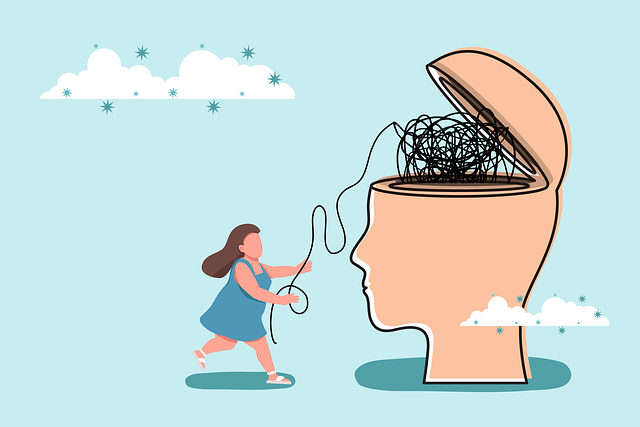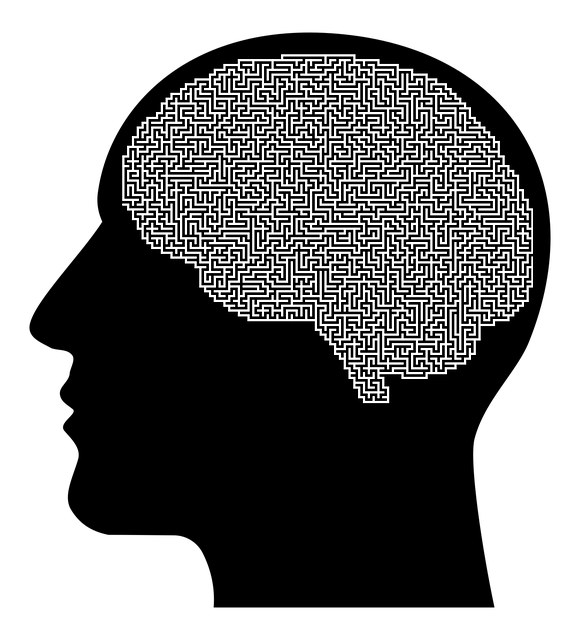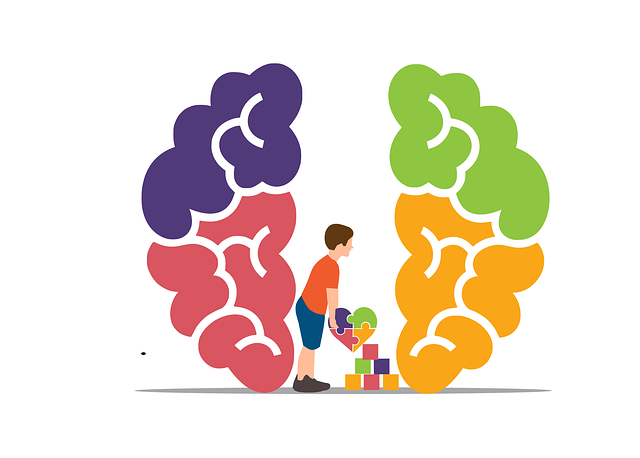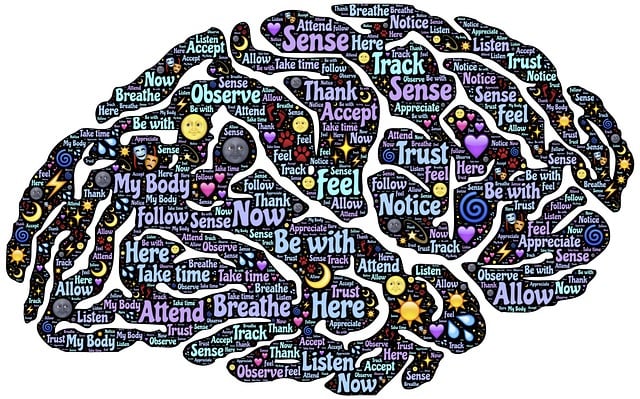In today's digital era, Centennial Gambling Therapy addresses the growing demand for accessible mental wellness coaching, offering tailored programs focused on emotional regulation and self-care. By integrating evidence-based practices like CBT and mindfulness, this modern approach empowers individuals to manage stress, anxiety, and depression while fostering healthier lifestyles. Through comprehensive training, advocacy, and community outreach, Centennial Gambling Therapy ensures that effective, data-driven mental wellness coaching is available to all, promoting overall well-being and reducing the barriers of traditional therapy.
Mental wellness coaching programs are gaining traction as essential tools for promoting holistic well-being. In today’s fast-paced world, individuals face numerous challenges that can impact their mental health. This article explores the development of comprehensive mental wellness coaching programs, emphasizing the role of Centennial Gambling Therapy (CGT) techniques in fostering resilience and recovery. By understanding the need for such programs and implementing key components effectively, we can measure success and continuously improve support for better mental wellness outcomes.
- Understanding the Need for Mental Wellness Coaching Programs
- Defining Centennial Gambling Therapy and its Role in Coaching
- Key Components of an Effective Mental Wellness Coaching Program
- Implementation Strategies for Integrating Centennial Gambling Therapy Techniques
- Measuring Success and Continuous Improvement in Mental Wellness Coaching
Understanding the Need for Mental Wellness Coaching Programs

In today’s fast-paced world, the demand for mental wellness coaching programs has never been higher. The rise of issues like stress, anxiety, and depression across all age groups underscores the urgent need for accessible support. Traditional therapy often involves long wait times and extensive financial commitments, making it less viable for many individuals. This is where Centennial Gambling Therapy steps in as a game-changer, offering tailored coaching programs that prioritize emotional regulation and self-care practices.
By focusing on mental wellness, these programs empower individuals to develop resilience and confidence boosting techniques. They cater to diverse needs, from navigating life transitions to managing chronic stress. In light of the growing awareness about mental health, these initiatives ensure that everyone has access to support, fostering a healthier and more balanced lifestyle for all.
Defining Centennial Gambling Therapy and its Role in Coaching

Centennial Gambling Therapy is a modern approach to coaching that recognizes the intricate link between gambling behavior and mental wellness. This therapy focuses on understanding the underlying psychological factors that drive gambling addiction, providing a holistic framework for coaches to support their clients’ recovery. By integrating evidence-based practices, such as cognitive-behavioral techniques, into coaching sessions, professionals can effectively address the complex issues surrounding problem gambling.
This approach not only helps individuals manage their gambling urges but also equips them with essential communication strategies and conflict resolution techniques. A comprehensive Risk Assessment for Mental Health Professionals is crucial in this context, enabling coaches to identify potential triggers and develop tailored interventions. Through these methods, Centennial Gambling Therapy aims to enhance the overall well-being of individuals, fostering a healthier relationship with gaming activities while teaching valuable coping mechanisms that extend beyond gambling contexts.
Key Components of an Effective Mental Wellness Coaching Program

An effective Mental Wellness Coaching program should incorporate several key components to address and support individuals’ overall mental health and well-being. One of the cornerstone elements is establishing a safe, non-judgmental space where clients feel comfortable sharing their thoughts and emotions. This fosters trust and encourages open communication, which is essential for any coaching journey. Coaches play a vital role in guiding clients towards self-discovery by employing active listening skills, validating their experiences, and reflecting back their feelings—a powerful Empathy Building Strategy that strengthens the therapeutic alliance.
Additionally, integrating evidence-based techniques such as Cognitive Behavioral Therapy (CBT) can enhance program effectiveness. CBT helps individuals identify and challenge negative thought patterns and beliefs, thereby promoting Positive Thinking and improving Mood Management. Centering the coaching around these principles ensures that clients gain practical tools to navigate their mental health challenges, ultimately empowering them to lead more fulfilling lives.
Implementation Strategies for Integrating Centennial Gambling Therapy Techniques

The integration of Centennial Gambling Therapy techniques into mental wellness coaching programs requires strategic planning and implementation. One effective strategy is to mentor coaches in these therapeutic approaches, ensuring they understand the underlying principles and practical applications. This can be achieved through comprehensive training sessions, workshops, or even peer-to-peer learning where experienced practitioners share their insights. By empowering coaches with this knowledge, they can seamlessly incorporate techniques like cognitive-behavioral therapy, mindfulness exercises, and positive affirmations—key components of Centennial Gambling Therapy—into regular coaching sessions.
Moreover, Mental Health Policy Analysis and Advocacy plays a pivotal role in creating an enabling environment for such innovative practices. This involves collaborating with relevant authorities to develop policies that support access to mental wellness resources, including coaching programs utilizing Centennial Gambling Therapy. Additionally, leveraging the power of Mental Wellness Podcast Series Production can help disseminate information about these therapy techniques, raising awareness among the general public and potential beneficiaries. Encouraging open conversations around mental health through podcasts not only promotes understanding but also reduces stigma, fostering a culture of support for those seeking positive thinking and mental wellness solutions.
Measuring Success and Continuous Improvement in Mental Wellness Coaching

Measuring success in mental wellness coaching programs is a multifaceted process that goes beyond simple satisfaction surveys. It involves tracking tangible improvements in clients’ lives, such as reductions in anxiety levels, improvements in mood management, and enhanced resilience to stress. By utilizing robust evaluation tools and data analysis, coaches can identify which strategies and techniques are most effective for different individuals and situations. This data-driven approach allows for continuous improvement in coaching methods and the development of more tailored, evidence-based programs.
Incorporating feedback from clients through regular check-ins, along with metrics like engagement rates and goal achievement, provides valuable insights into program effectiveness. Additionally, collaborating with community outreach programs to implement proven Stress Reduction Methods can further enhance the impact. By fostering a culture of continuous learning and adaptation, mental wellness coaching services, such as Centennial Gambling Therapy, ensure they remain relevant and beneficial for those seeking support in navigating life’s challenges.
Mental wellness coaching programs, enriched by the integration of Centennial Gambling Therapy techniques, offer a promising approach to enhancing emotional resilience. By combining evidence-based practices with a personalized touch, these programs cater to diverse needs in today’s demanding world. Through structured components, effective implementation strategies, and rigorous measurement, mental wellness coaching can facilitate significant positive changes. As we continue to navigate life’s challenges, embracing such innovative solutions is key to fostering healthier, more balanced individuals and communities.














